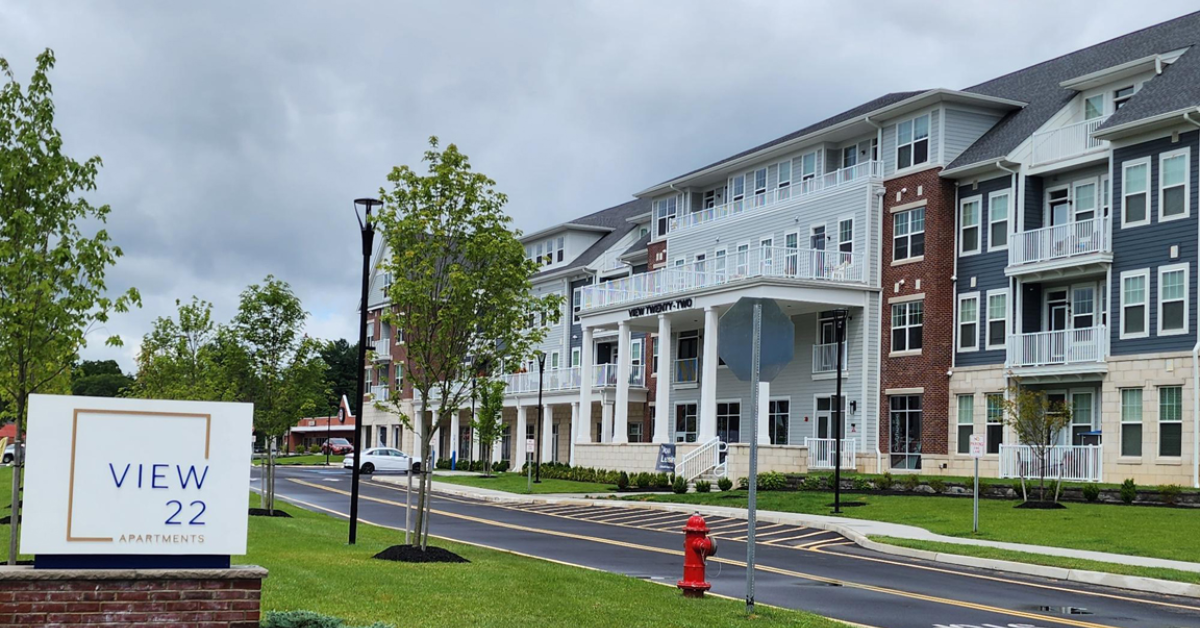The ongoing battle over New Jersey’s affordable housing law is set to return to court on January 23, as 27 towns continue their fight to block the state’s fourth round of affordable housing obligations. These towns have found more flaws in the law and are determined to stop it from being enforced.
The case will be heard in Mercer County Superior Court after a case management conference held on January 14 in Montvale. The coalition of towns, known as Local Leaders For Responsible Planning (LLRP), has previously attempted to halt the implementation of the law, but their efforts were denied in early January.
The January 14 hearing lasted nearly 40 minutes, and new deadlines for legal briefs were set for the ongoing challenge. The hearing scheduled for January 23 at 2 p.m. will be conducted via Zoom, and it will focus on the most recent motions filed by Montvale as part of the lawsuit.
The towns are questioning the legality of the new affordable housing requirements and are seeking to delay the enforcement of deadlines related to them.
The lawsuit was first filed by the 27 towns, which include Washington Township, Norwood, Parsippany-Troy Hills, Franklin Lakes, Cedar Grove, East Hanover, Holmdel, Wall, Little Falls, Montvale, Allendale, Westwood, Hanover, Wyckoff, Wharton, Mendham, Oradell, Denville, Florham Park, Hillsdale, Mannington, Millburn, Montville, Old Tappan, Totowa, Closter, and West Amwell.
These towns have been vocal in their opposition to the affordable housing law, claiming that it imposes an unfair burden on suburban communities and undermines local control.
LLRP has also raised several issues with the way the law is being implemented. In a statement following the January 14 conference, the group pointed out that certain members of the Affordable Housing Dispute Resolution Program (ADC) are exempt from the Code of Judicial Conduct, which allows them to engage in political activities and accept outside income.
This, they argue, could lead to conflicts of interest in decisions about affordable housing obligations. The LLRP also criticized the ADC for creating new requirements for municipalities to adopt fair share plans, which they claim will make it even harder for towns to meet their affordable housing obligations.

Another significant concern raised by the LLRP involves the New Jersey Housing Mortgage and Finance Agency (HMFA). According to the group, HMFA issued nearly 200 pages of rules for the Fourth Round of affordable housing obligations without providing any opportunity for municipalities to review or comment on them.
While HMFA claims to have held roundtable events with housing advocacy organizations over a six-month period, the LLRP argues that no New Jersey municipality was given a chance to participate in these discussions.
Judge Robert Lougy, who presided over the previous proceedings, held the January 14 Zoom conference to address Montvale’s latest legal motion, which seeks to delay the implementation of the law.
Montvale’s motion is part of an ongoing effort to challenge the affordable housing deadlines set by the state, with an impending January 31 deadline for towns to submit their affordable housing obligation numbers to the Department of Community Affairs.
In a motion filed following the January 14 conference, Judge Lougy instructed all defendants in the case, including the Fair Share Housing Center, the state Attorney General’s Office, the Housing and Mortgage Finance Agency, and the New Jersey Urban Mayors’ Association, to file opposition briefs by January 17. Montvale will then have until January 21 to respond to these briefs.
The Fair Share Housing Center, a key defender of the affordable housing law, reacted to Judge Lougy’s earlier decision to deny the motion to pause the law. Executive Director Adam Gordon expressed gratitude that the judge had not found enough evidence to delay the law’s implementation, calling it a landmark piece of legislation.
Montvale Mayor Michael Ghassali, who has led the legal challenge against the law, has stated that the towns involved in the lawsuit are committed to fighting it all the way to the state’s highest court if necessary.
Mayor Ghassali also criticized the formula used by the state to allocate affordable housing obligations, which requires suburban towns to create four affordable housing units for every 10 people who move into urban areas like Jersey City or Hoboken. He argued that this formula unfairly burdens suburban communities and vowed to continue the legal fight, even if it takes time to reach the Supreme Court.
The outcome of this case could have significant implications for New Jersey’s affordable housing policies and may set a precedent for how such laws are challenged in the future.
Disclaimer: This article has been meticulously fact-checked by our team to ensure accuracy and uphold transparency. We strive to deliver trustworthy and dependable content to our readers.







Leave a Comment